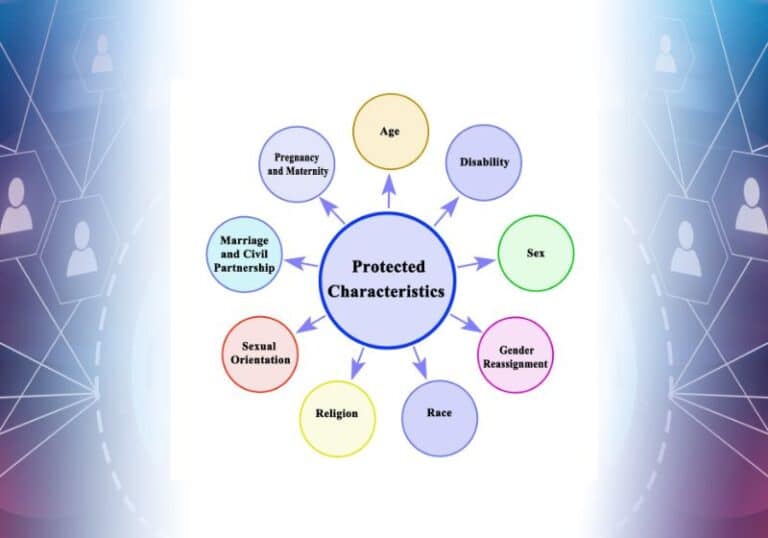Whistleblowing Laws Under Review by Government

Whistleblowing can be a key mechanism in unearthing injustice, corruption and illegal activity in the business world and beyond. Current whistleblowing laws are now under review by the UK government to see if they adequately protect workers who blow the whistle on wrongdoing in the workplace, and new legislation is also on the horizon. This guide will outline proposed changes and is designed to help businesses and individuals prepare for any potential changes.
What is whistleblowing?
Whistleblowing refers to the instances whereby a worker makes an open disclosure, often to the wider public or press, about wrongdoing or the suppression of wrongdoing in their place of work. Perhaps the most infamous examples in recent years include Edward Snowden and Chelsea Manning, who uncovered a global surveillance network and a series of high-profile incidents within the US military respectively. Most instances are nowhere near as notorious, however, they still represent an invaluable tool for authorities when tackling corruption, fraud, racketeering and other economic crimes by providing crucial evidence as only an insider would be able to.
Furthermore, whistleblowing can also be a way for employers to report unsafe or harmful working conditions – a function that was especially useful during the height of the COVID-19 pandemic. The Care Quality Commission (CQC) as well as the Health and Safety Executive (HSE) recorded a dramatic increase in the number of instances of whistleblowing when the pandemic was at its height1.
Whistleblowing laws in the United Kingdom
The United Kingdom was among the first countries in the world to develop a legal framework that afforded whistleblowers a degree of protection in the form of the Public Interest Disclosure Act 1998 (PIDA), although it has at times fallen short of living up to its own standards.
Under current whistleblowing legislation, workers (an employee, trainee, agency worker or member of a Limited Liability Partnership (LLP)) are protected by law and should not be treated unfairly or lose their job if they choose to disclose any of the following:
- Instances of criminal offence, such as financial fraud
- Situations that risks someone’s health or safety
- Risk or damage to the environment
- Miscarriages of justice
- That the business is breaking the law (for instance, insufficient insurance coverage)
- The concealment of any of the above
Information pertaining to these instances is referred to as protected disclosure. This means that any act of whistleblowing falls under the category of non-retaliation; employers must never fire nor mistreat workers who choose to whistleblow. However, it should be noted that a number of other things, including personal grievances, do not fall under the category of whistleblowing and are thus afforded separate protections (or none) in accordance with employer’s grievance policy. This can include instances of workplace bullying, harassment, discrimination or other matters of dispute. That said, exceptions do exist, especially if the case is considered to be in the public interest.
Does the law go far enough?
As currently described, the whistleblowing laws feature a somewhat limited scope for what classifies as ‘protected disclosure’. For instance, regulatory breaches, misuse or abuse of authority, mismanagement of public funds and the destruction, deletion or removal of documents relating to said matters doesn’t currently fall under the general rubric of protected disclosure.
Successive governments have sought to expand and improve upon the existing act, but now the government has chosen to review the effectiveness of the current system and analyse the protections offered to whistleblowers and the availability of information and guidance provided by employers and the government themselves. This is set to include a guide on best practices for how employers and prescribed persons should respond to any instances of whistleblowing within their organisation.
The government’s research, conducted by the Department for Business and Trade and set to conclude this autumn, will focus on the key following areas:
- How has the whistleblowing framework facilitated disclosures?
- How has the whistleblowing framework protected workers?
- Is whistleblowing information available and accessible for workers, employers, prescribed persons and others?
- What have been the wider benefits and impacts of the whistleblowing framework, on employers, prescribed persons and others?
- What does best practice look like in responding to disclosures?
In addition to the above review of existing legislation, there is now a proposed new law making its way through the House of Lords that aims to significantly expand upon current powers and protections.
The Protection for Whistleblowing Bill
Put forward in 2022, this bill aims to replace and enlarge the scope of the current PIDA legislation in a number of key ways2:
1. The expansion of what is considered protected disclosure.
As previously mentioned, regulatory breaches, abuse/misuse of authority and mismanagement of public funds (as well as the covering up of information related to them) are not currently covered as protected disclosure. Under the new law, this situation is set to be remedied, and further powers granted to the Secretary of State to expand upon the new definition even further in future.
2. The widening of the term ‘whistleblower’ to include non-employees.
Perhaps the biggest change, however, will be the inclusion of people who do not work for the business in question. If in the public interest, anyone will be able to make a protected disclosure, whether an employee or third party. This will further include not only those who have made, make or will make protected disclosures, but also those who are perceived by a relevant person to have done so. In other words, the protections will expand to cover any potential case of whistleblowing, including instances whereby no firm conclusion has yet been drawn.
3. The creation of the Office of the Whistleblower.
The proposed legislation also includes the creation of an all-new standalone regulatory body, the Office of the Whistleblower. This body will:
- Oversee the whistleblowing process
- Provide statutory guidance
- Be granted enforcement powers which include the ability to investigate disclosures through a new reporting service as well as issue information
- Action and redress orders
- Grant interim relief over the course of proceedings and even
- Levy fines or bring criminal charges against any potential infringing parties
- Make orders of financial redress to be paid to whistleblowers who have suffered unfair treatment
These significant powers will mean that any instance of whistleblowing will have a more standardised procedure, as well as an increased potential for any redress of grievance.
4. The possibility of considerable civil penalties.
Businesses may be subject to substantial fines if they fail to comply with obligations imposed on them by the aforementioned office – either 10% of annual global turnover, capped at £18m, or, for individuals, up to 10% of their gross annual income, capped at £50,000.
5. The introduction of new criminal offences.
A number of new offences are set to be put into law, including ‘subjecting a whistleblower to detriment’ for which fines and even a custodial sentence may be imposed.
What impact does this have for businesses in the UK?
If passed, the bill threatens to have an extensive impact on the already troublesome costs for Financial Conduct Authority (FCA)-regulated firms, and will also make a sizable addition to businesses’ compliance burden.
That said, the financial services sector is expected to be the chief area of concern for the new regulatory body due to an increasing number of whistleblowing reports to the FCA from within the sector. Indeed, an increase of reports as much as 14% was reported for the third quarter of 2022, the majority of which centred around issues of compliance3. Further reports are likely to ensue as suspected cases of fraud continue to mount. Moreover, concerns over environmental, social and governance (ESG) compliance is likely to become a hot-button issue for many businesses and may also contribute to a marked increase in reports.
Meanwhile, companies may be concerned of falling foul of the new criminal offences within the bill as well as the additional risk of litigation and reputational damage posed. Because the bill prohibits confidentiality agreements as part of its protected disclosure, businesses could well be liable for significant damages were they to run adrift of the legislation.
What can whistleblowers and businesses do?
For individuals, it is imperative to know your rights, what you can report currently and the extent of the current protections. Due to vagaries of the term ‘public interest’ you may not be currently afforded the safeguards that you need under the current legislation, but you may well see an increase in what you are able to report should the bill come to pass.
For companies, robust, proactive measures must be put in place before the proverbial hammer strikes. If your business doesn’t have a designated professional assigned to dealing with whistleblowing cases, then it is imperative that you do so. Note that it may not always be as simple as having a manager deal with a complaint; if the report concerns the manager directly, then the whistleblower may not feel as though they are able to communicate with them directly about it.
Instead, ensure that any employee has multiple avenues available to them, and that you have sufficient recourse in the case of an erroneous report.
We at HR:4UK deal with whistleblowing cases ourselves, and our advice lines are available for employers and employees alike. Call 01455 444 222 today or email us on [email protected].
Alternatively, contact the independent not-for-profit Protect on 0203 117 2520 for free, confidential advice.
References:
1. Department for Business and Trade; Hollindrake, K. (27 March 2023). Government Reviews Whistleblowing Laws. https://www.gov.uk/government/news/government-reviews-whistleblowing-laws
2. UK Government. (2022) Protection for Whistleblowing Bill. https://bills.parliament.uk/publications/46929/documents/2010
3. Financial Conduct Authority. (12th January 2023). Whistleblowing Quarterly Data 2022 Q3. https://www.fca.org.uk/data/whistleblowing-quarterly-data-2022-q3
James Dawson
James is our resident wordsmith and has many years of experience in writing about a huge variety of topics from HR to Occupational Health and beyond. He has been published in numerous magazines and news outlets, and especially enjoys researching and analysing the current trends in the modern business world.




